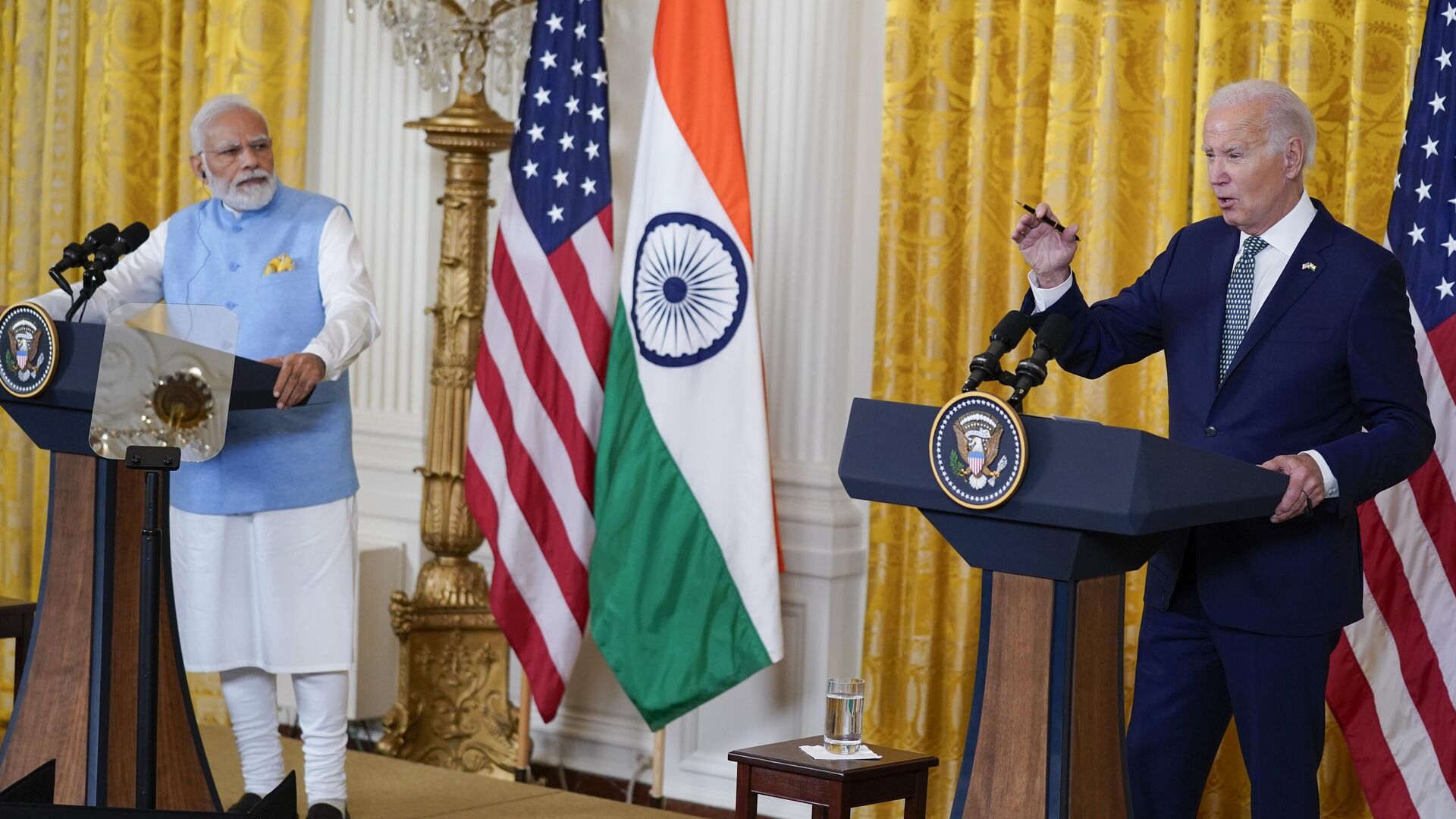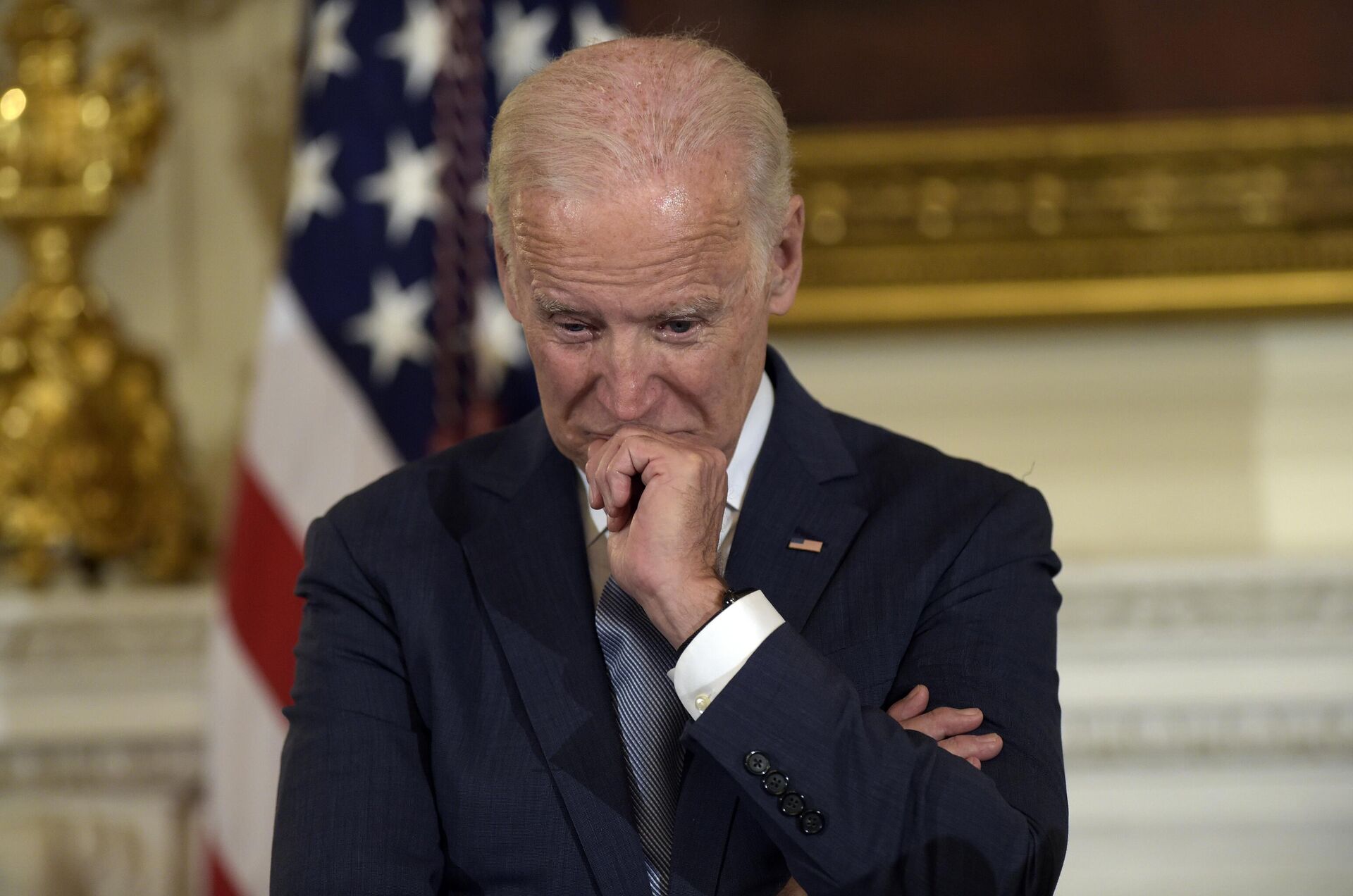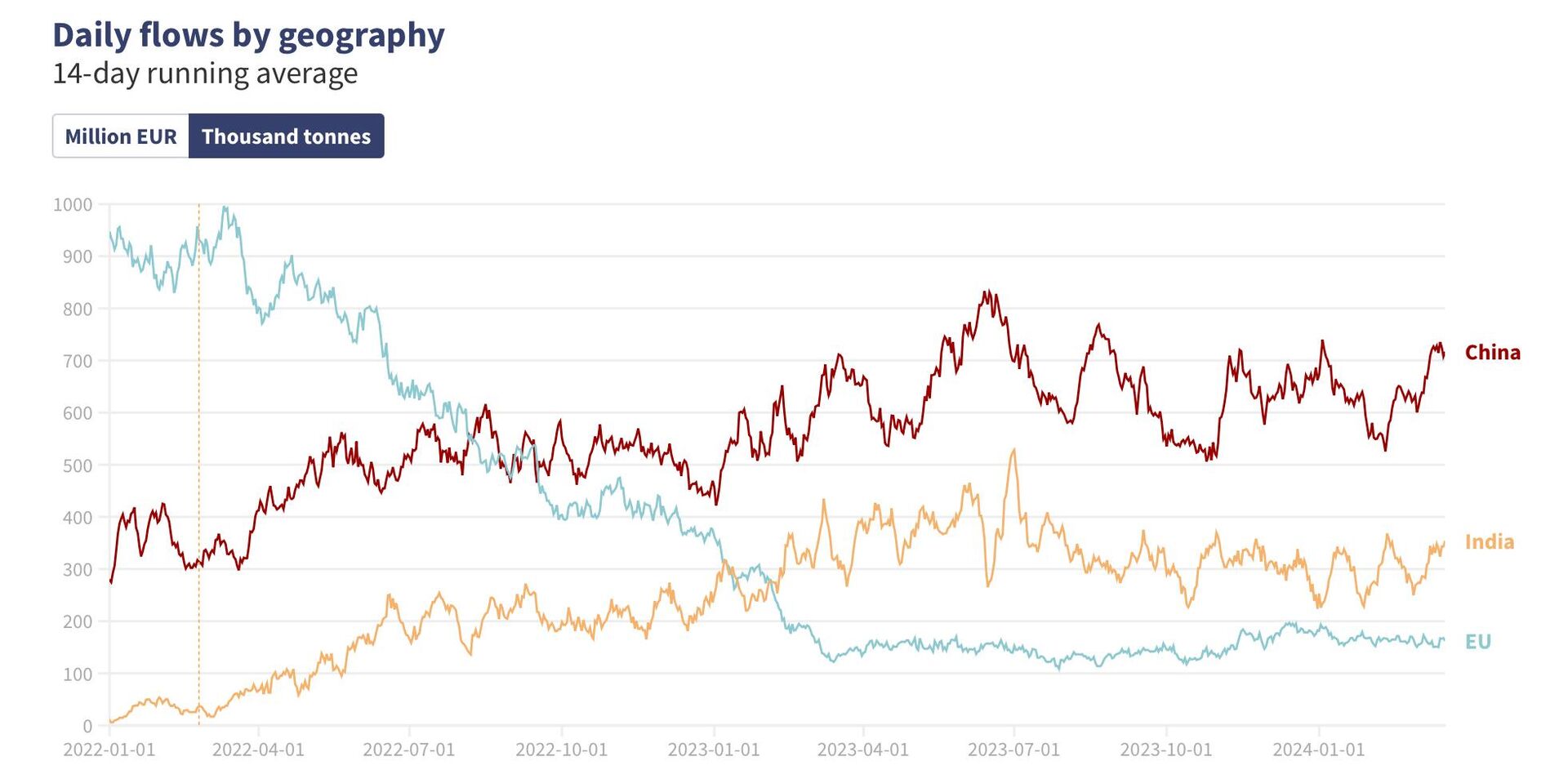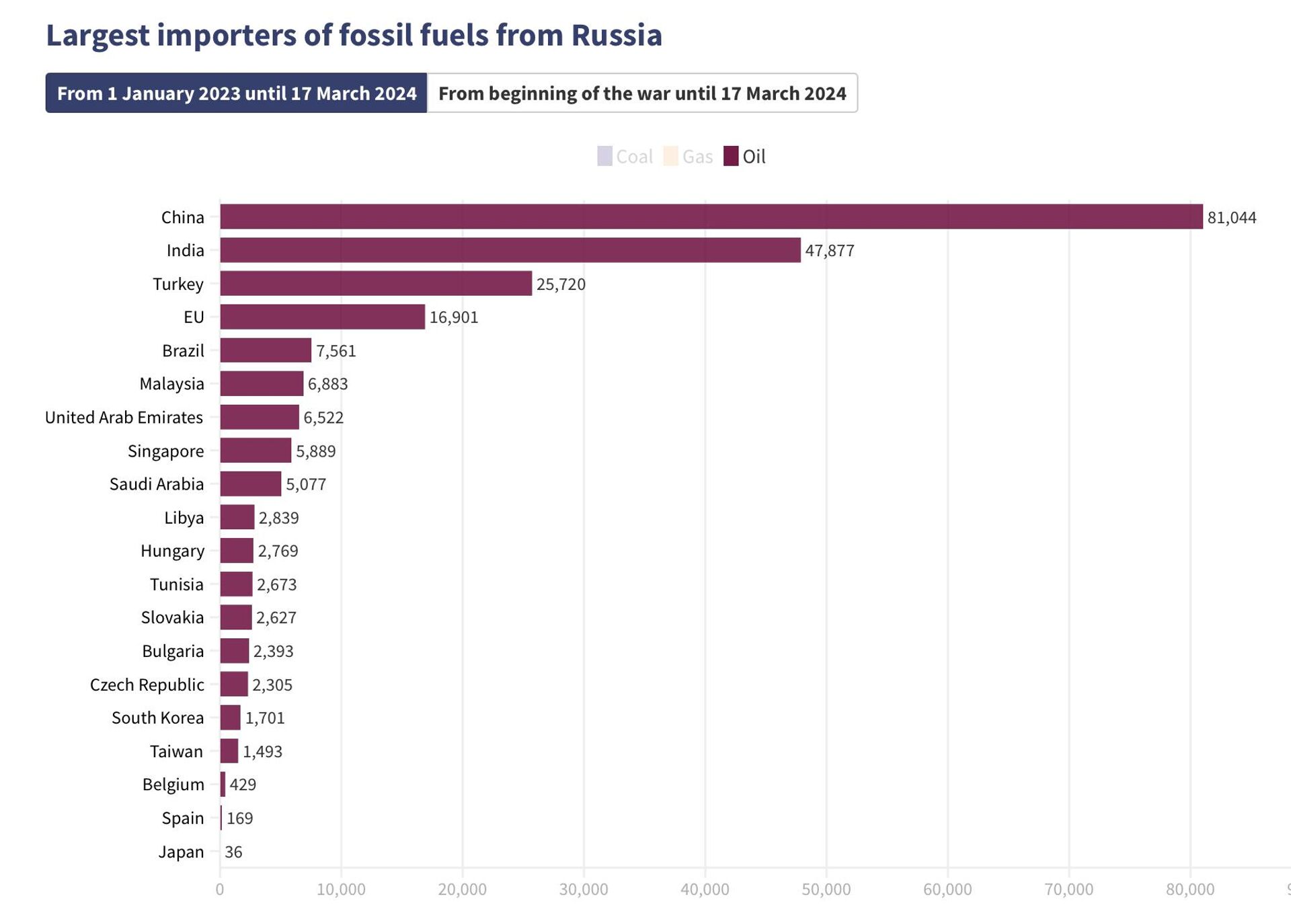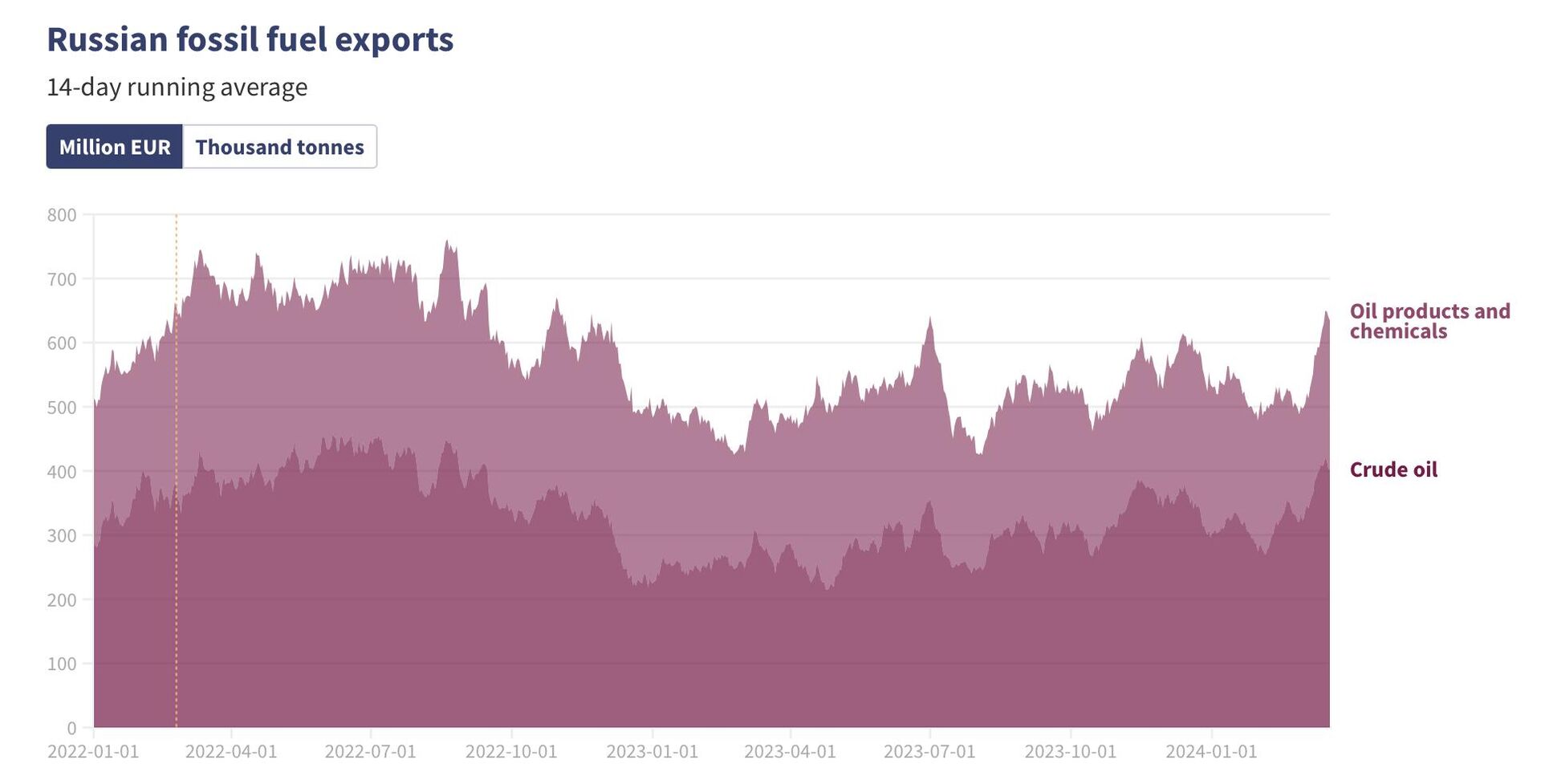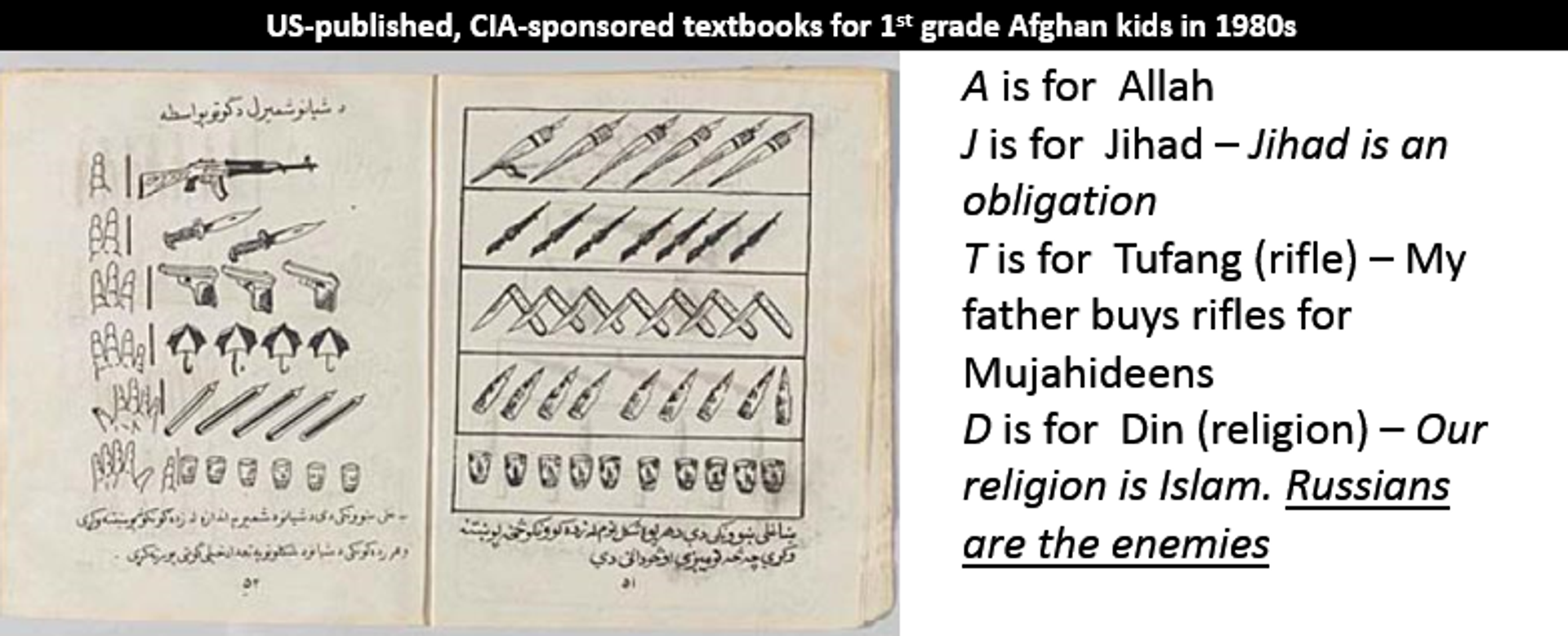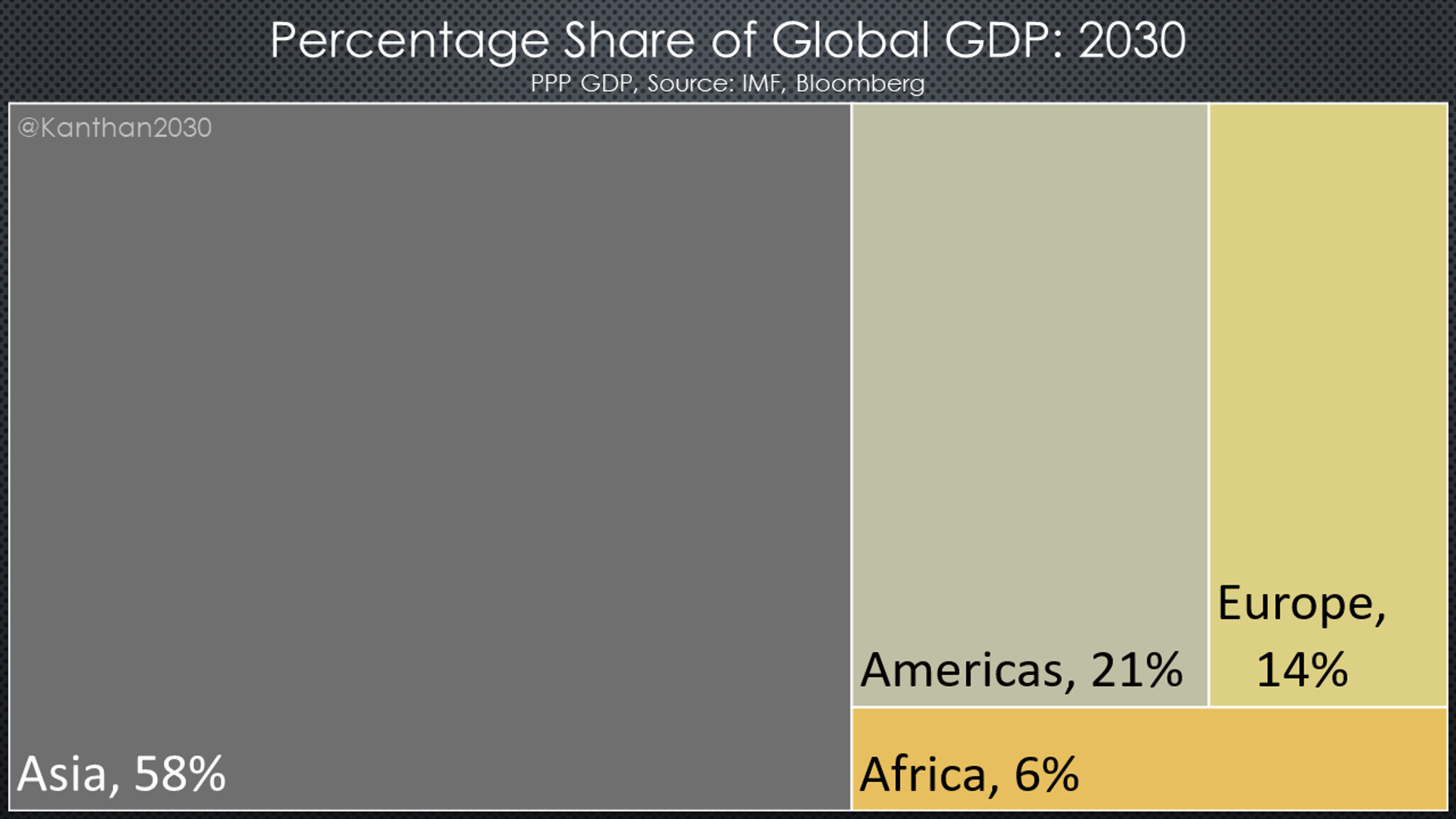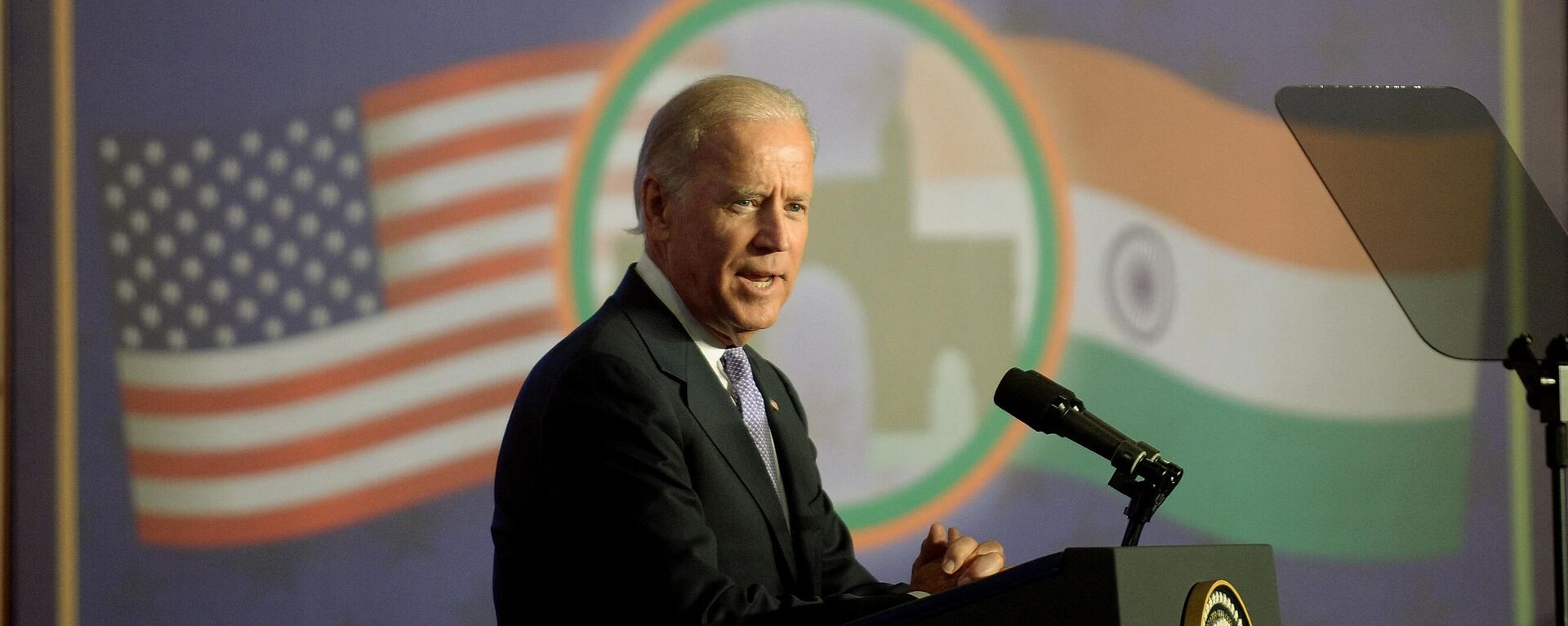https://sputniknews.in/20240327/india-must-reject-american-tyranny-6956437.html
India Must Reject American Tyranny
India Must Reject American Tyranny
Sputnik India
US empire's aggressive sanctions and coercive tactics face criticism from Indian leaders for undermining global sovereignty and economic freedom. S.L. Kanthan, a geopolitical analyst, in a column for Sputnik India tells why India should reject the empire's hegemony and tyranny.
2024-03-27T15:00+0530
2024-03-27T15:00+0530
2024-03-27T15:00+0530
vladimir putin
s. jaishankar
joe biden
us
india
russia
cia
the united nations (un)
european union (eu)
sputnik opinion
https://cdn1.img.sputniknews.in/img/07e7/06/17/2647318_0:0:3072:1728_1920x0_80_0_0_0d1a88af2901057fb7fca5256a75fc78.jpg
Will the US Empire end with a whimper or a bang? Looking at the last few years, especially the last two, the answer unfortunately seems to point to the latter. Unwilling to accept a multipolar world, the globalist rulers of the USA are determined to push the world to the brink of WW3. Whether it’s escalating the proxy war on Russia – now escalating to horrific terrorist attacks in Moscow – or the genocidal wars on Palestinians in Gaza or the relentless economic warfare on China – while laying the groundworks for a hot war vis-a-vis Taiwan – the US is lost in a maze of hubris and desperation. Even though the sanction wars on Russia have failed miserably, the US’ latest attempt to hamper the Russian economy involves new sanctions on India’s oil refineries aimed at Russian oil. India must reject this illegal coercion and firmly assert its economic and geopolitical sovereignty.It's quite astounding that most countries meekly accept US sanctions. In fact, these are tyrannical imposition that have no grounds in international law, UN charter, or even common sense. The foundation of the global system is the sovereignty of nations. When the US championed free market, free trade, GATT, WTO etc., the fundamental principle was that any country can trade with anyone else, whenever, whatever, however.So, what happened? As the US started to lose its global power, it started to weaponize the dollar and other financial tools that it had established earlier. Since the US dollar is the prime global reserve currency and trade currency, almost every international corporation needs to use US banks to engage in commercial activities. This allows the US to engage in blackmail: “If you trade with this country or that corporation, we will block you from US banks.” Worse, the US can even confiscate the dollar accounts in US banks without any due process – as the world witnessed the seizure of $300 billion of Russia’s foreign exchange reserves two years ago. This is why Uday Kotak, Indian billionaire and bank CEO said, “The U.S. dollar is the biggest financial terrorist!”Worse, the US sanctions transform into global sanctions. Thus, the US not only refuses to trade with a certain country but can also stop European countries from doing business with that particular country – for example, Syria, North Korea, Venezuela and so on. Another example is how the US bullied South Korea’s Samsung into not making semiconductor chips for Huawei. Finally, consider how the US stopped India from working on the Chabahar project (in Iran), which would have greatly improved India’s energy security.Theoretically, Russia could refuse to service Russian military weapons unless India stops dealing with certain US companies. Or, imagine China telling India, “We will not sell you raw materials for pharmaceutical drugs unless you kick out Facebook and let WeChat and TikTok monopolize the Indian market.” Even African countries have leverage with critical raw materials such as Cobalt to make unreasonable demands, but they don’t.In 2022, at the beginning of Russia’s Special Military Operation in Ukraine, India’s petroleum minister told the West that India will increase its purchase of oil from Russia and said, “We have to look after our own interests.” When European leaders sanctimoniously criticized India for helping Russia’s war efforts with the purchase of Russian oil, Indian foreign minister Jaishankar replied, “Europe has to grow out of the mindset that Europe’s problems are the world’s problems, but the world’s problems are not Europe’s problems.” Those are wise words that should be used against the US now.New Sanctions and What They MeanUntil 2022, India did not buy much oil from Russia due to high freight rates. However, once the conflict in Ukraine began, India ramped up its purchases significantly. As seen in the chart below, India and China compensated for the loss of exports to Europe.India is the world’s third largest importer and consumer of oil. It has been the largest importer of seaborne Russian oil for more than a year now. On the flip side, Russia has been the #1 provider of oil to India, accounting for almost a third of Indian imports. Overall, looking at the importers of fossil fuels from Russia from Jan 2023 through March 2024, India ranks #2.Interestingly, as seen in the chart above, Europe still buys oil and gas from Russia, in spite of all the hot air. Hungary, Slovakia, and the Czech Republic not only buy crude oil but also pipeline gas from Russia. France buys natural gas from Russia and resells it to the UK, which then boasts how it has decoupled from Russia. Europe has also bought a lot of refined Russian petroleum from India. Even the US bought $1 billion of Uranium from Russia last year. The Western hypocrisy has no limit.Now, with its ego badly bruised, the US is trying to harass Russia with new sanctions allegedly for “violating” the price cap imposed by the US. Specifically, the new sanctions target Russia’s #1 shipping company Sovcomflot and its 14 or so subsidiaries. Of course, India and others should challenge the US: “Who are you to set arbitrary prices for transactions between two sovereign countries?”Strangely, all Indian refineries – private companies such as Reliance as well as state-owned Bharat Petroleum and Indian Oil Corp.– have bowed to the latest unilateral US sanctions and have stopped buying oil carried on tankers owned by Sovcomflot. At least, temporarily.Instead, Indian refineries have signed new deals to buy more oil – WTI Midland – from the US. Over the last two years, US crude oil has accounted for as little as 4% of India’s imports.The US is bitter because Russia’s economy did not collapse as the great minds in Washington DC had expected. When the US/EU imposed thousands of sanctions on Russia in 2022, stole Russia’s FOREX, and banned Russian banks from SWIFT, President Biden gloated that “Ruble will turn into rubble.” However, under President Putin’s amazing leadership, the Russian economy kept growing and surpassed Germany as Europe’s largest economy (by PPP GDP).Looking at Russia’s exports of oil, gas and coal, the revenues today are practically the same as they were in the beginning of 2022. The world has only limited amount of oil for exports. All that the US can do is to reshuffle customers and buyers, but cannot have meaningful impact on Russia’s exports.India’s OptionsIndia has three options in dealing with the new US sanctions:US Empire of MalevolenceAmerican propaganda is omnipresent in India, so there is a lot of misconception about the global role of the US. For example, Indians are very sensitive to Islamist terrorism, thanks to the persistent problems in Kashmir and the 2008 Mumbai attack. However, many Indians do not understand how the US (and some of its allies like the UK) have been fostering, arming and funding Islamist extremists and terrorists for many decades. Let’s have a quick review:In the early 1950s, the US co-opted the militant Muslim Brotherhood as a geopolitical pawn against the secular Arab leaders, who were leaning towards the Soviet Union. And that US relationship with terrorism has flourished until now. For example, the prosperous and secular country of Syria has been devastated for more than a decade because of the jihadists supported by the CIA – known as Operation Timber Sycamore. From Henry Kissinger and John Kerry to the New York Times, the American establishment claimed brazenly that ISIS was a useful tool against Iran and Russia. There were numerous occasions when US and Israeli planes acted as the “air force for ISIS,” attacking the Syrian army. Sometimes, the US armed ISIS by “mistakenly” air-dropping weapons. It was Russia that saved Syria from becoming an Al Qaeda haven. So, who would India want to be aligned with – Russia or the US?In the 1980s, of course, the US armed and trained the Mujahideen to fight the USSR in Afghanistan. America, with help from Saudi Arabia and others, indoctrinated and recruited young Muslim men from all over the world, brought them to Pakistan for training, and sent them into Afghanistan. Israel also supplied weapons to these fighters. At that time, Bin laden was America’s BFF – Best Friend Forever. The CIA even published textbooks to brainwash young children to become violent fighters and suicide bombers.When the USSR collapsed, guess what the US did? It rebranded the Mujahideen as Al Qaeda and sent them into Central Asia and even parts of Europe (like Albania, Bosnia and Kosovo). These Wahhabi terrorists, flush with money and weapons from the CIA, fomented civil wars in Chechnya and Dagestan in order to destabilize and chop up Russia. These American mercenaries also blew up Russian pipelines in the region, because Western oil companies wanted to monopolize the Caspian Sea region, which is rich in oil and gas. (Only when Putin came to power, were these terrorists defeated once and for all).The US also blew up the Nord Stream pipeline, and the legendary American journalist Seymour Hersh has described in detail how the CIA carried out this international terrorist attack. This has also crippled the economy of Germany, the economic powerhouse of Europe and supposed “ally” of the US.To summarize, the United States of America is an Empire of Malevolence that constantly violates the international rules-based order, a term that is ironically an American invention.ConclusionAs I wrote in my previous article, India must beware the American trap. India is a major global power in the world, but not a great power. India’s GDP-per-capita will still be less than $3,000 by the end of this year. One of the key necessities for India’s growth is energy – oil, natural gas, nuclear power, and green energy. In three out of those four sectors, India’s best partner will be Russia, who is also a loyal and patient ally who respects India’s sovereignty. (For solar and wind energy, China is the undisputed champion). Unlike the American imperialists, Russia does not dictate India’s domestic or foreign policies. India can have a truly symbiotic relationship with Russia, a great power that can help India in a myriad of ways – perhaps even mediating India-China détente.The future belongs to BRICS+ and a multipolar world, where the dollar is not the king, America does not enjoy the biggest economy, perpetual wars are not the norm, technology and innovation are not exclusive to the West, and the geopolitical power center is not based in Washington DC or Brussels.The future is Asian, and India must calibrate its current policies to align with the future. That means rejecting American hegemony and tyranny.--- S.L. Kanthan
https://sputniknews.in/20240321/india-should-beware-of-the-american-empires-trap-6893871.html
us
india
russia
south asia
southeast asia
indo-pacific
pacific ocean
beijing
Sputnik India
feedback.hindi@sputniknews.com
+74956456601
MIA „Rossiya Segodnya“
2024
News
en_IN
Sputnik India
feedback.hindi@sputniknews.com
+74956456601
MIA „Rossiya Segodnya“
Sputnik India
feedback.hindi@sputniknews.com
+74956456601
MIA „Rossiya Segodnya“
us empire, whimper, bang, years, globalist rulers, multipolar world, ww3, proxy war, russia, terrorist attacks, moscow, genocidal wars, palestinians, gaza, economic warfare, china, taiwan, hubris, desperation, sanction wars, india, oil refineries, coercion, sovereignty, international law, un charter, free market, free trade, gatt, wto, sovereignty of nations, weaponize, dollar, financial tools, global reserve currency, us banks, blackmail, confiscate, due process, global sanctions, european countries, syria, north korea, venezuela, south korea, samsung, semiconductor chips, huawei, chabahar project, iran, mafia, russia, china, pharmaceutical drugs, facebook, wechat, tiktok, african countries, cobalt, uday kotak, financial terrorist, special military operation, ukraine, petroleum minister, jaishankar, european leaders, new sanctions, oil, russia, conflict, ukraine, china, importers, fossil fuels, europe, hungary, slovakia, czech republic, france, uk, decoupled, western hypocrisy, uranium, ego, harassment, sovcomflot, reliance, bharat petroleum, indian oil corp., wti midland, exports, wedge, biden, ruble, swift, gdp, ppp, options, modi government.
us empire, whimper, bang, years, globalist rulers, multipolar world, ww3, proxy war, russia, terrorist attacks, moscow, genocidal wars, palestinians, gaza, economic warfare, china, taiwan, hubris, desperation, sanction wars, india, oil refineries, coercion, sovereignty, international law, un charter, free market, free trade, gatt, wto, sovereignty of nations, weaponize, dollar, financial tools, global reserve currency, us banks, blackmail, confiscate, due process, global sanctions, european countries, syria, north korea, venezuela, south korea, samsung, semiconductor chips, huawei, chabahar project, iran, mafia, russia, china, pharmaceutical drugs, facebook, wechat, tiktok, african countries, cobalt, uday kotak, financial terrorist, special military operation, ukraine, petroleum minister, jaishankar, european leaders, new sanctions, oil, russia, conflict, ukraine, china, importers, fossil fuels, europe, hungary, slovakia, czech republic, france, uk, decoupled, western hypocrisy, uranium, ego, harassment, sovcomflot, reliance, bharat petroleum, indian oil corp., wti midland, exports, wedge, biden, ruble, swift, gdp, ppp, options, modi government.
Will the US Empire end with a whimper or a bang? Looking at the last few years, especially the last two, the answer unfortunately seems to point to the latter.
Unwilling to accept a
multipolar world, the globalist rulers of the USA are determined to push the world to the brink of WW3. Whether it’s escalating the proxy war on Russia – now escalating to
horrific terrorist attacks in Moscow – or the
genocidal wars on Palestinians in Gaza or the relentless economic warfare on China – while laying the groundworks for a hot war vis-a-vis Taiwan –
the US is lost in a maze of hubris and desperation.
Even though the
sanction wars on Russia have failed miserably, the US’ latest attempt to hamper the Russian economy involves new sanctions on India’s oil refineries aimed at Russian oil. India must reject this illegal coercion and firmly assert its economic and geopolitical sovereignty.
It's quite astounding that most countries meekly accept US sanctions. In fact, these are tyrannical imposition that have no grounds in international law, UN charter, or even common sense. The foundation of the global system is the sovereignty of nations. When the US championed free market, free trade, GATT, WTO etc., the fundamental principle was that any country can trade with anyone else, whenever, whatever, however.
So, what happened? As the
US started to lose its global power, it started to
weaponize the dollar and other financial tools that it had established earlier. Since the US dollar is the prime global reserve currency and trade currency, almost every international corporation needs to use US banks to engage in commercial activities.
This allows the US to engage in blackmail: “If you trade with this country or that corporation, we will block you from US banks.” Worse, the US can even confiscate the dollar accounts in US banks without any due process – as the world witnessed the seizure of $300 billion of Russia’s foreign exchange reserves two years ago. This is why Uday Kotak, Indian billionaire and bank CEO said, “The U.S. dollar is the biggest financial terrorist!”
Worse, the US sanctions transform into global sanctions. Thus, the US not only refuses to trade with a certain country but can also
stop European countries from doing business with that particular country – for example, Syria, North Korea, Venezuela and so on. Another example is how the US bullied South Korea’s Samsung into not making semiconductor chips for Huawei. Finally, consider how the US stopped India from working on the Chabahar project (in Iran), which would have greatly improved India’s energy security.
This is nothing but a global Mafia. Nobody else does this. When was the last time Russia told India to not do business with the US?
Theoretically, Russia could refuse to service Russian military weapons unless India stops dealing with certain US companies. Or, imagine China telling India, “We will not sell you raw materials for pharmaceutical drugs unless you kick out Facebook and let WeChat and TikTok monopolize the Indian market.” Even African countries have leverage with critical raw materials such as Cobalt to make unreasonable demands, but they don’t.
In 2022, at the beginning of Russia’s Special Military Operation in
Ukraine, India’s petroleum minister told the West that
India will increase its purchase of oil from Russia and said, “We have to look after our own interests.” When European leaders sanctimoniously criticized India for helping Russia’s war efforts with the purchase of Russian oil, Indian foreign minister
Jaishankar replied, “
Europe has to grow out of the mindset that Europe’s problems are the world’s problems, but the world’s problems are not Europe’s problems.” Those are wise words that should be used against the US now.
New Sanctions and What They Mean
Until 2022, India did not buy much oil from Russia due to high freight rates. However, once the conflict in Ukraine began, India
ramped up its purchases significantly. As seen in the chart below, India and China compensated for the loss of exports to Europe.
India is the world’s third largest importer and consumer of oil. It has been the largest importer of seaborne Russian oil for more than a year now. On the flip side, Russia has been the #1 provider of oil to India, accounting for almost a third of Indian imports. Overall, looking at the
importers of fossil fuels from Russia from Jan 2023 through March 2024, India ranks #2.
Interestingly, as seen in the chart above,
Europe still buys oil and gas from Russia, in spite of all the hot air. Hungary, Slovakia, and the Czech Republic not only buy crude oil but also pipeline gas from Russia.
France buys natural gas from Russia and resells it to the
UK, which then boasts how it has decoupled from Russia. Europe has also bought a lot of refined Russian petroleum from India. Even the US bought $1 billion of Uranium from Russia last year. The Western hypocrisy has no limit.
Now, with its ego badly bruised, the US is trying to harass Russia with new sanctions allegedly for “violating” the price cap imposed by the US. Specifically, the new sanctions target Russia’s #1 shipping company Sovcomflot and its 14 or so subsidiaries. Of course, India and others should challenge the US: “Who are you to set arbitrary prices for transactions between two sovereign countries?”
Strangely, all Indian refineries – private companies such as Reliance as well as state-owned Bharat Petroleum and Indian Oil Corp.– have bowed to the latest unilateral US sanctions and have stopped buying oil carried on tankers owned by Sovcomflot. At least, temporarily.
Instead, Indian refineries have signed new deals to buy more oil – WTI Midland – from the US. Over the last two years, US crude oil has accounted for as little as 4% of India’s imports.
The new US sanctions are also aimed at two things: hurting Russia’s economy and driving a wedge between India and Russia.
The US is bitter because Russia’s economy did not collapse as the great minds in Washington DC had expected. When the US/EU imposed thousands of sanctions on Russia in 2022, stole Russia’s FOREX, and banned Russian banks from SWIFT, President Biden gloated that “Ruble will turn into rubble.” However, under President Putin’s amazing leadership, the Russian economy kept growing and surpassed Germany as Europe’s largest economy (by PPP GDP).
Looking at Russia’s
exports of oil, gas and coal, the
revenues today are practically the same as they were in the beginning of 2022. The world has only limited amount of oil for exports. All that the US can do is to reshuffle customers and buyers, but cannot have meaningful impact on Russia’s exports.
India has three options in dealing with the new US sanctions:
Ignore US diktats. After all, the Modi government has already done that for the last two years. The US will not dare to antagonize India.
Follow the price cap, but pay Russia in other ways. For example, say, India pays $60 for a barrel that costs $80. Here, India can agree to pay Russia the difference of $20 in the future. Or, India can buy weapons, ammunition and military spare parts from Russia and pay $20 extra.
Use Chinese yuan to circumvent US banks. When India exports goods to China, it can agree to get paid in yuan, which can be used to pay for Russian oil. As for Russia, it has widely adopted RMB/yuan in many sectors of its economy. Russia can also use the yuan to import goods from China. Win-win-win all around.
American propaganda is omnipresent in India, so there is a lot of misconception about the global role of the US. For example,
Indians are very sensitive to Islamist terrorism, thanks to the persistent problems in Kashmir and the 2008
Mumbai attack. However, many Indians do not understand how the
US (and some of its allies like the UK) have been fostering, arming and funding Islamist extremists and terrorists for many decades. Let’s have a quick review:
In the early 1950s, the US co-opted the militant Muslim Brotherhood as a geopolitical pawn against the secular Arab leaders, who were leaning towards the Soviet Union. And that
US relationship with terrorism has flourished until now. For example, the prosperous and secular country of Syria has been devastated for more than a decade because of the jihadists supported by the
CIA – known as Operation Timber Sycamore.
From Henry Kissinger and John Kerry to the New York Times, the American establishment claimed brazenly that ISIS was a useful tool against Iran and Russia. There were numerous occasions when US and Israeli planes acted as the “air force for ISIS,” attacking the Syrian army. Sometimes, the US armed ISIS by “mistakenly” air-dropping weapons. It was Russia that saved Syria from becoming an Al Qaeda haven. So, who would India want to be aligned with – Russia or the US?
In the 1980s, of course, the US armed and trained the Mujahideen to fight the USSR in
Afghanistan. America, with help from Saudi Arabia and others, indoctrinated and recruited young Muslim men from all over the world, brought them to
Pakistan for training, and sent them into Afghanistan.
Israel also supplied weapons to these fighters. At that time,
Bin laden was America’s BFF – Best Friend Forever. The CIA even published textbooks to brainwash young children to become violent fighters and suicide bombers.
The US also did not mind that many of the terrorists and weapons flowed into Pakistan-occupied parts of Kashmir. Let’s not be naive, the US would deploy the same playbook against India, if the relationship sours in the future.
When the USSR collapsed, guess what the US did? It rebranded the Mujahideen as Al Qaeda and sent them into
Central Asia and even parts of Europe (like Albania, Bosnia and
Kosovo). These Wahhabi terrorists, flush with money and weapons from the CIA, fomented civil wars in Chechnya and Dagestan in order to destabilize and chop up Russia. These American mercenaries also blew up Russian pipelines in the region, because Western oil companies wanted to monopolize the Caspian Sea region, which is rich in oil and gas. (Only when Putin came to power, were these terrorists defeated once and for all).
Let’s also remember how the US-funded Chechnyan terrorists took 900+ hostages in the Dubrovka theater in Moscow in 2002. The resemblance of that to what happened in the Crocus Concert Hall a few days ago is unmistakable. There is no doubt in my mind that the US was behind this despicable and cowardly attack.
The US also blew up the Nord Stream pipeline, and the legendary American journalist Seymour Hersh has described in detail how the CIA carried out this international terrorist attack. This has also crippled the economy of Germany, the economic powerhouse of Europe and supposed “ally” of the US.
To summarize, the United States of America is an Empire of Malevolence that constantly violates the international rules-based order, a term that is ironically an American invention.
As I wrote in my previous article, India must
beware the American trap. India is a major global power in the world, but not a great power. India’s GDP-per-capita will still be less than $3,000 by the end of this year.
To marginally become a developed nation, India needs high and sustained growth for the next 25 years. That will be possible only if India focuses on peace, infrastructure, jobs, exports, and all-around development for the next two decades.
One of the key necessities for India’s growth is energy – oil, natural gas, nuclear power, and green energy. In three out of those four sectors, India’s best partner will be Russia, who is also a loyal and patient ally who respects India’s sovereignty. (For solar and wind energy, China is the undisputed champion).
Unlike the American imperialists, Russia does not dictate India’s domestic or foreign policies. India can have a truly symbiotic relationship with Russia, a great power that can help India in a myriad of ways – perhaps even mediating India-China détente.
The future belongs to
BRICS+ and a multipolar world, where the dollar is not the king, America does not enjoy the biggest economy, perpetual wars are not the norm, technology and innovation are not exclusive to the West, and the geopolitical power center is not based in Washington DC or Brussels.
The future is Asian, and India must calibrate its current policies to align with the future. That means rejecting American hegemony and tyranny.
